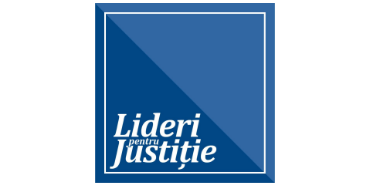I avoided writing on this blog during the electoral campaign for the local elections, because a national component is quite evident to this campaign–the results will definitely set the stage for the parliamentary elections at the end of the year, and I wouldn’t want anybody to think I’d be interfering in any way. But I feel compelled to share some news, especially as this past week a monitoring team from Brussels visited Romania and inquired into the progress achieved on the 4 specific benchmarks regarding Justice and Home Affairs. Based on their findings, the European Union may choose to activate the safeguard clause against Romania by the end of July, when a new country report will be issued. I participated in two meetings with the monitoring team, in my capacity as member of the National Integrity Council (CNI). The meetings, talks, and participants therein, are protected under Chatham House rules, but certain information has already leaked to the media, allowing me to offer you a personal view on the matters at hand. I expected the overall tone of the team’s informal conclusions and recommendations to be harsher–but I agree they were fair and firm.
In a previous address to Minister Predoiu, I suggested that one of the biggest problems of his mandate would relate to the adoption of the new Criminal/Penal Codes–both substance and procedure. Indeed, the monitoring team has the same concern, looking especially at the tremendously difficult consultations and negotiations that must take place among professionals (lawyers, prosecutors and judges), among politicians (both within the Cabinet and the Parliament), and among the most important institutions (Ministry of Justice and Superior Council of Magistracy, to name only two). Three alternatives are available for the adoption of the Codes before the end of 2008–actually, before the general elections–but I think only the third may really solve the problem:
- the Ministry of Justice may send the draft Codes to Parliament now, provided that Mr Predoiu irons out an agreement with Ms Nicolai and Mr Andon, that would allow for consultations to parallel the parliamentary debates in the standing committees on legal issues–a precedent was set at the time of the new electoral law, but the outcome proved fragile, and I don’t think we can afford to pass Codes that come short of being “the best”;
- the Cabinet may coordinate the multi-level consultations for several months over the summer, and then assume responsibility on the full texts some time in the fall–while this solution somewhat short-circuits the Parliament, I doubt that a minority Cabinet is willing to stake all of their 4-year “achievements” on only one vote, just weeks before the general elections, unless they’d be 100% confident on the Codes really being “the best”;
- the Prime Minister may negotiate with the heads of political groupings in Parliament for an extraordinary session at the end of August–the multi-level consultations may be over by that time (as in solution #2), while the legislation introduced this way benefits from an urgency procedure in Parliament (similar to solution #1), thus being able to meet the deadline/expectations from Brussels, ensure quality consultations for “the best” outcome, and display the appropriate deference to Parliament.
In the same post, I suggested that things were working well with the National Integrity Agency (ANI), and the monitoring team seems to concur. Since 15 April, Mr Cătălin Macovei is the first full-fledged President of the Agency, now managing over 60 staff and in the process of hiring new inspectors. As the Agency is up, but not yet running, CNI is looking forward to putting together objective criteria regarding the full operationalization of the Agency, while the Ministry of Economy and Finance approved a budget supplement of about €3 mln. for the Agency, from the budget reserve. But don’t think all is rosy: A former candidate from the first round of selection for the heads of the Agency, Mr Adrian Morar of Braşov, had filed a lawsuit against the Council and the Agency last August. Among other court tactics and proceedings, Mr Morar filed a non-constitutionality complaint with the Constitutional Court–in his full right! [In spite of my personal disliking of Mr Morar’s opening Pandora’s box in this case, I am his first supporter in his exercising constitutional rights and freedoms, and will not accept him being stigmatized or scapegoated for any ensuing legal problems regarding the Agency!] Given my constant fears of the Court’s discretionary powers, and Murphy’s law, I think nobody should be too surprised if Romania fails on this particular benchmark as a result of this constitutional “conflict.”
The monitoring team also referred to the National Anti-corruption Prosecution (DNA), albeit with a mixed language that would not allow for a definite conclusion. Internal matters at DNA seem to be working well, but relations with the courts are not so bright 🙁 In essence, it seems that no substantial evolution can be praised or criticized, since court decisions in key (high-level) corruption cases are nowhere to be found 🙁 During the past 3 weeks, quite a circus kept the first-pages in the papers and made ratings for TV talk-shows: Some former ministers and current Members of Parliament, charged with various counts of corruption, tax evasion, influence peddling or even treason, brought about an impressive institutional ping-pong among the Prosecution, the Presidency, the Ministry of Justice, the Constitutional Court, the Prosecution again, and finally the Parliament. Rather making their case on the letter than the spirit of the law, these institutions gave a new meaning to the phrase “parliamentary immunity,” weaving an intricate, conflicting web of legal procedures that may eventually prevent any and all public officials of parliamentary, ministerial or presidential stature from ever getting their day in court!!! [Even if they did, I am quite sure “the system” wouldn’t let such “valuable characters” get their time in prison, as one can always hang a trial on a technicality 🙁 ]
So, what else hangs in the balance?!? The Superior Council of Magistracy (CSM) seems to be lagging behind on matters regarding accountability, professional ethics, recruitment and promotion/demotion of magistrates, as well as overall support for reforms. The Supreme Court (or ICCJ–the High Court of Cassation and Justice, to be exact) should be more active in unifying jurisprudence across the land. Public institutions, in general, lack awareness as to their own vulnerable areas, or entry-points, for corruption and conflicts of interests–and the Ministry of Interior and Administrative Reforms ain’t doing much to rectify the problem. Very few of these problems are under direct control from the Ministry of Justice, since all of these institutions are either placed outside the Executive branch of Government (CSM, ICCJ, CNI, Parliament and Constitutional Court), or are protected against direct Executive interference (DNA, ANI). Still, the European Union calls on the Executive/Ministry of Justice to account for, and fix the problems. Therefore, the suggested solution of sending monthly progress reports to Brussels might come in handy for all these institutions to reach consensus and act in concertation. At the end of the day, especially if the “conductor” comes from Brussels, I doubt that Romania would suffer from the activation of the safeguard clause–but the slap on the wrist will be resounding! [And will, most definitely, affect the premises of the general elections at the end of 2008…]






